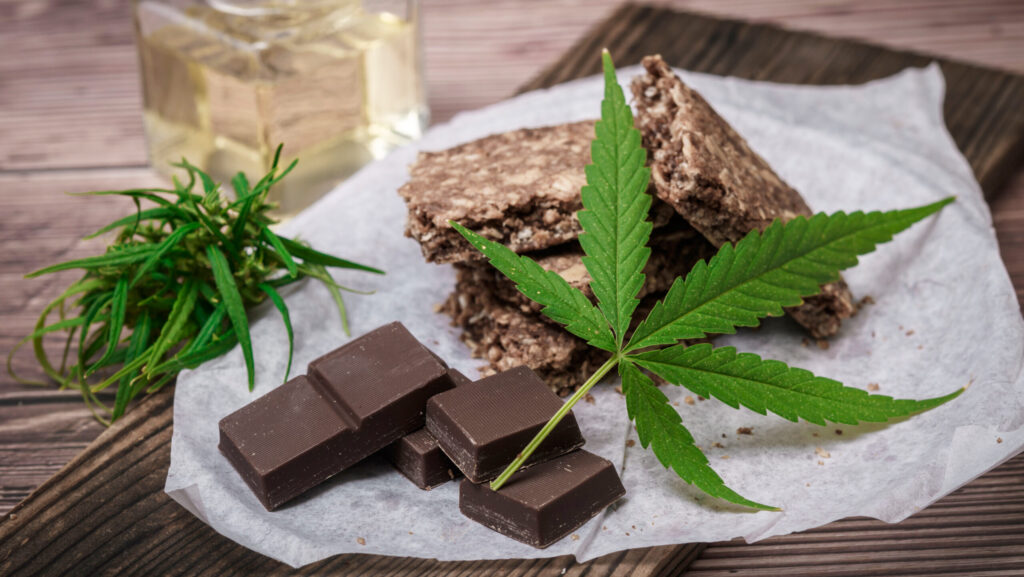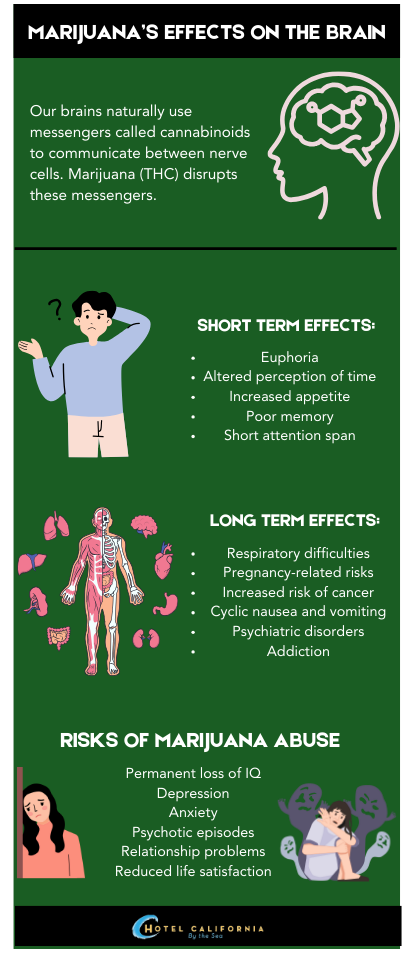Can you OD on Weed?
Cannabis, marijuana, or weed is one of the most commonly abused illicit substances worldwide. The main psychoactive ingredient THC is what causes euphoria and psychedelic feelings which users hope to achieve when using the drug. Like other drugs, overconsumption of weed can cause an overdose of THC. Sometimes an overdose can be an accident, can be intentional, can be mild or can be severe.

The overconsumption of substances such as weed and other mind-altering drugs can lead to serious health issues including social, psychological and even economic. The Centers for Disease Control and Prevention has reported that over 100,000 people in the US have died from drug overdose between 2020 and 2021. The following year saw the same steady rate of overdose deaths. According to the National Institute on Drug Abuse, an estimated 108,000 people in the US died from a drug overdose in 2022.
Overdosing on cannabis or weed is not the same as overdosing on other drugs such as alcohol, opioids or benzos. It is rare to encounter any fatal or life-threatening outcomes from overdosing on weed alone. Unfortunately, there is no set standard or amount in which a person can overdose on weed. In fact, the point at which a person can overdose is dependent on many factors. A cannabis dose that was fine at one point can cause overdose symptoms at a different time when taken. Those who have a high tolerance for cannabis can consume more without feeling the effects of an overdose. In contrast, those who have a lower tolerance can begin to feel the effects immediately. Other factors that determine overdose also include how often you consume weed, what type of weed product you are consuming and your endocannabinoid system.
Factors that impact how you react to Weed
- Age – Young people are more likely to experience adverse physical and psychological effects of cannabis use.
- Tolerance – People who regularly use THC will develop a higher tolerance and will be less affected by large doses of THC. These people will take her doses and are at more risk for overdose.
- Dosage – Larger doses or higher concentrations of THC products are more likely to cause overdose and adverse effects.
- History of Cannabis use – A person who has no history of cannabis use is more likely to experience the side effects.
- Substance use – Mixing cannabis with other mind-altering substances such as alcohol and opioids can produce a higher chance of weed overdose.
Serious side effects of THC Abuse
- Anxiety and panic attacks
- Paranoia
- Chest pain
- Nausea and vomiting
- Hallucinations – seeing or hearing things that aren’t there
- Feel unlike yourself
- Seizures
- Difficulty with cognitive functions such as focusing, learning and remembering
- Increased risk of heart attack and stroke
- Brain development impairment

Can you OD on Weed?
Yes, you can overdose on weed. However, it is not the same as overdosing on other drugs like alcohol, heroin or cocaine. THC does not cause respiratory depression, which is the primary cause of death in many drug overdoses. Weed overdose cannot lead to death. However, consuming excessive amounts of THC can lead to very uncomfortable and harmful symptoms. Major symptoms of marijuana overdose include abdominal pain, dizziness, disorientation, difficulty maintaining balance, hallucinations, psychosis, delusions, impaired cognition, confusion, anxiety and disorganized thinking.
The side effects of a THC overdose can be very uncomfortable, but highly unlikely to be fatal on its own. There have been no records of an overdose death caused solely by smoking or consumption of THC, the active ingredient in marijuana. Weed overdose is generally not a serious medical emergency and there is no way to reverse the symptoms. The effects will have to wear off over time and treatment will be aimed towards the symptoms such as keeping a person hydrated from severe dehydration due to vomiting.
An overdose of weed is also more likely to occur when a user ingests THC orally through edibles. Edibles are often unregulated and the exact measurements of how much THC in edible products can be unknown or inaccurate. Not knowing how much THC you consumed can lead to a higher risk of overdose.
High risk of Overdose with Edibles
Overdosing on weed is more common with edible compared to smoking or inhaling weed. When inhaling or smoking weed, the effects of cannabis kick in almost immediately within minutes. The effects have a quick onset as well as a faster duration between 2-3 hours. When inhaling weed, the active ingredient is absorbed through the lungs, into the bloodstream and then makes its way into the brain. This is a much shorter process in which the THC reaches the bloodstream and the brain.
Edibles take a longer time to go into effect. It can take anywhere from 30 minutes to 2 hours for the effects of edibles to kick in. In some cases, it can take as long as 4 hours in order to feel the full effects. Because it has a slower onset, edibles also tend to last much longer in duration. Some edibles can last up to 12 hours after the initial dose. When eating an edible, the active ingredient needs to go through the entire digestive system, get processed by the liver, enter the bloodstream and then make its way to the brain. This is a much slower process. THC edibles can also put a user at a higher risk for overdose because when it is processed in the liver, it turns into a molecule called 11-hydroxy THC. This form of THC is more intense and more intoxicating when it reaches the brain.
Because it can take too long to feel the effects, people often do not wait long enough and begin taking another dose thinking they need more. Then after both doses begin to kick in, it may be too much to handle. Accurate dosing with edibles can also be more difficult. Knowing the amount of THC and serving size of THC is important in order to avoid taking too much that can cause an overdose. Even commercially purchased and sold edible products can be misleading. For example, you can eat an entire chocolate bar thinking it is only 10mg of THC, when in fact it is 10mg of THC per chocolate square.
Check Your Insurance Coverage for FREE
Find out if your insurance covers addiction treatment in minutes. We accept most insurance!
Signs you may be at risk for Weed Overdose
- You experience a heightened sense of relaxation when taking cannabis
- You experience an intense euphoric feeling when taking cannabis
- You experience an increased heart rate
- You experience an increase in appetite
- You have red eyes
- You experience a distorted sense of time
- You develop poor coordination
- You experience difficulty with memory
- You have difficulty thinking clearly
Ways to prevent overdose on Weed
- Pay attention to the dosage and how much THC you are consuming
- Purchase only regulated products
- Take regular breaking from cannabis products so you do not build up tolerance
- Smoke cannabis instead of eating an edible
- Take smaller amounts
Reach out to Hotel California by the Sea
We specialize in treating addiction and other co-occurring disorders, such as PTSD. Our Admissions specialists are available to walk you through the best options for treating your addiction.
Treatment for Substance Use Disorder
Substance abuse is the harmful and dangerous use of psychoactive substances which include alcohol, illicit drugs and cannabis. Although a fatal overdose of cannabis is very unlikely to occur, this doesn’t mean that it can produce risky symptoms such as psychotic reactions that can lead to medical treatment. Overdose on weed is more likely to occur when taking an edible or when taking cannabis with other mind-altering substances. THC affects the brain causing both physical and psychological effects such as mood changes, altered sense and euphoria. Excessive and persistent use of THC can lead to tolerance, dependence and addiction.
Hotel California by the Sea provides treatment for substance use disorders specifically for treating marijuana addiction. We offer treatment in detox, residential, PHP and IOP. Throughout each level of care, clients can also expect to receive evidence-based treatments such as CBT, DBT and family therapy. Hotel California by the Sea is dedicated to helping our clients achieve their goals of sobriety and overcoming their addiction.
References:
https://www.goodrx.com/classes/cannabinoids/can-you-overdose-on-weed-with-thc
https://www.destinationsforteens.com/destinations-blog/can-you-overdose-on-marijuana
https://recovered.org/marijuana/overdose
https://www.healthline.com/health/can-you-overdose-on-marijuana
